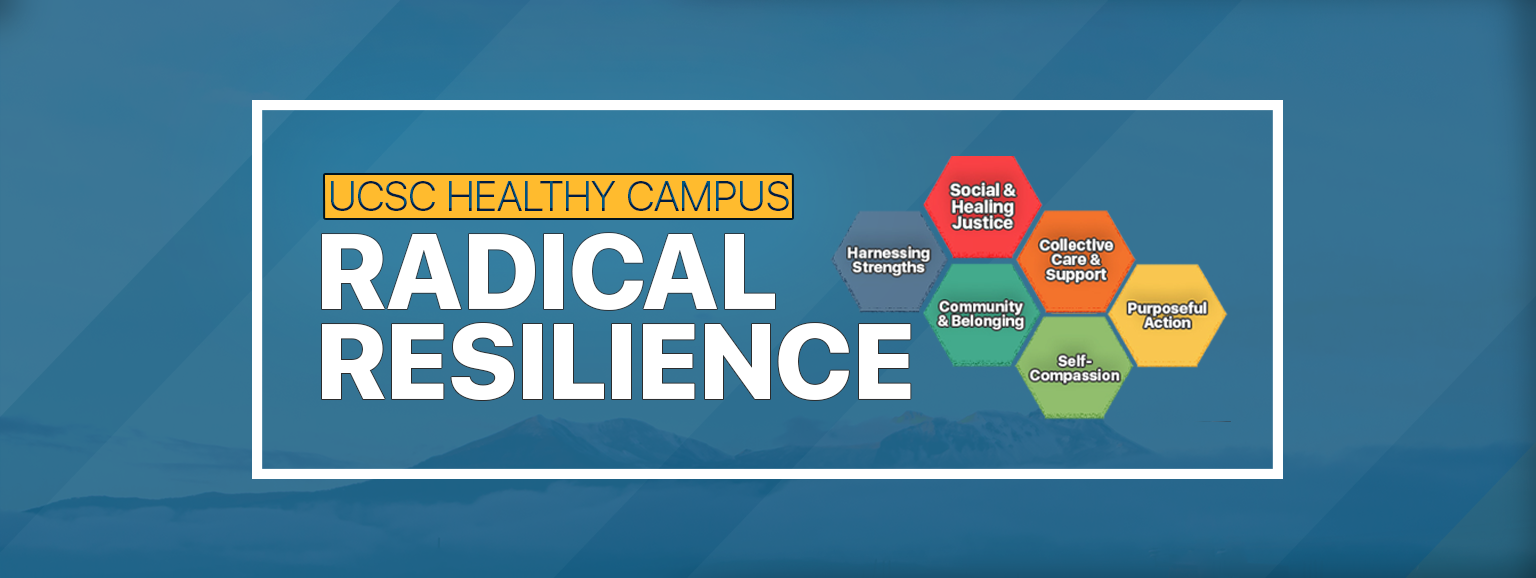UC Santa Cruz's Healthy Campus, part of the systemwide Healthy Campus Network (HCN), is partnering with the Student Health Center and the Be Well campaign to launch the Radical Resilience Initiative.
Our Goals
This campus-wide, collaborative effort seeks to:
-
Foster compassion, resilience, and academic success;
-
Challenge our notions of failure by reframing what we mean by “success”;
-
Provide students (both graduate and undergraduate), faculty, and staff with tangible, practical skills, and resources that build capacity, including how to effectively respond to those in distress;
-
Create a network and hub for the resilience work taking place on campus;
-
Strengthen community; and
-
Have fun.
Our Framework
The American Psychological Association (APA) defines personal resilience as the process of adapting and recovering from adversity, trauma, tragedy, threats, or significant sources of stress. Personal resilience is informed by internal and external protective factors and coping strategies. Personal resiliency is an ongoing, life-long learning process. Similarly, community resilience is the sustained ability of a community to utilize available resources to respond to, withstand, and recover from adverse situations.
Radical resilience integrates social and healing justice into this work by recognizing and addressing historical institutional barriers and systems of oppression. A radical resilience approach recognizes self- and collective-care as acts of resistance to disconnection, marginalization, and internalized oppression (Pyles, Healing Justice). Radical resilience is both a paradigm and a set of practices. It is an approach that recognizes the power of self-compassion, purposeful actions, intentional connections, and healing past trauma. Radical resilience is an invitation to make conscious choices and develop meaningful relationships. Radical resilience is an approach that values and nurtures community. Radical resilience invites practitioners to bring their attention, care, and healing capacities to the ways that lived experiences manifest in our bodies, minds, and spirits as well as our communities.
The Radical Resilience framework encompasses six core concepts:
-
Social and Healing Justice
-
Self-Compassion
-
Purposeful Action
-
Harnessing Strengths
-
Community and Belonging
-
Collective Care and Support
For more information or to join our effort, please contact Jessica Bulleri, Campus Wellness Program Manager, at jbulleri@ucsc.edu.

